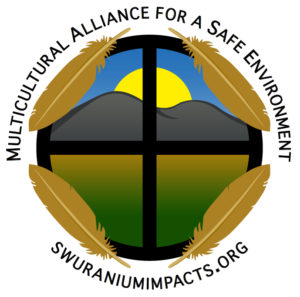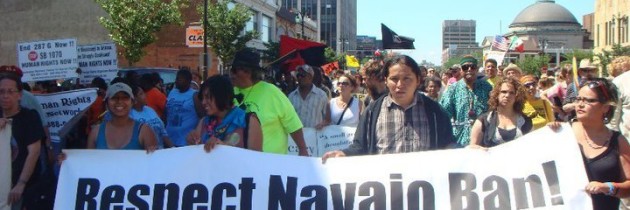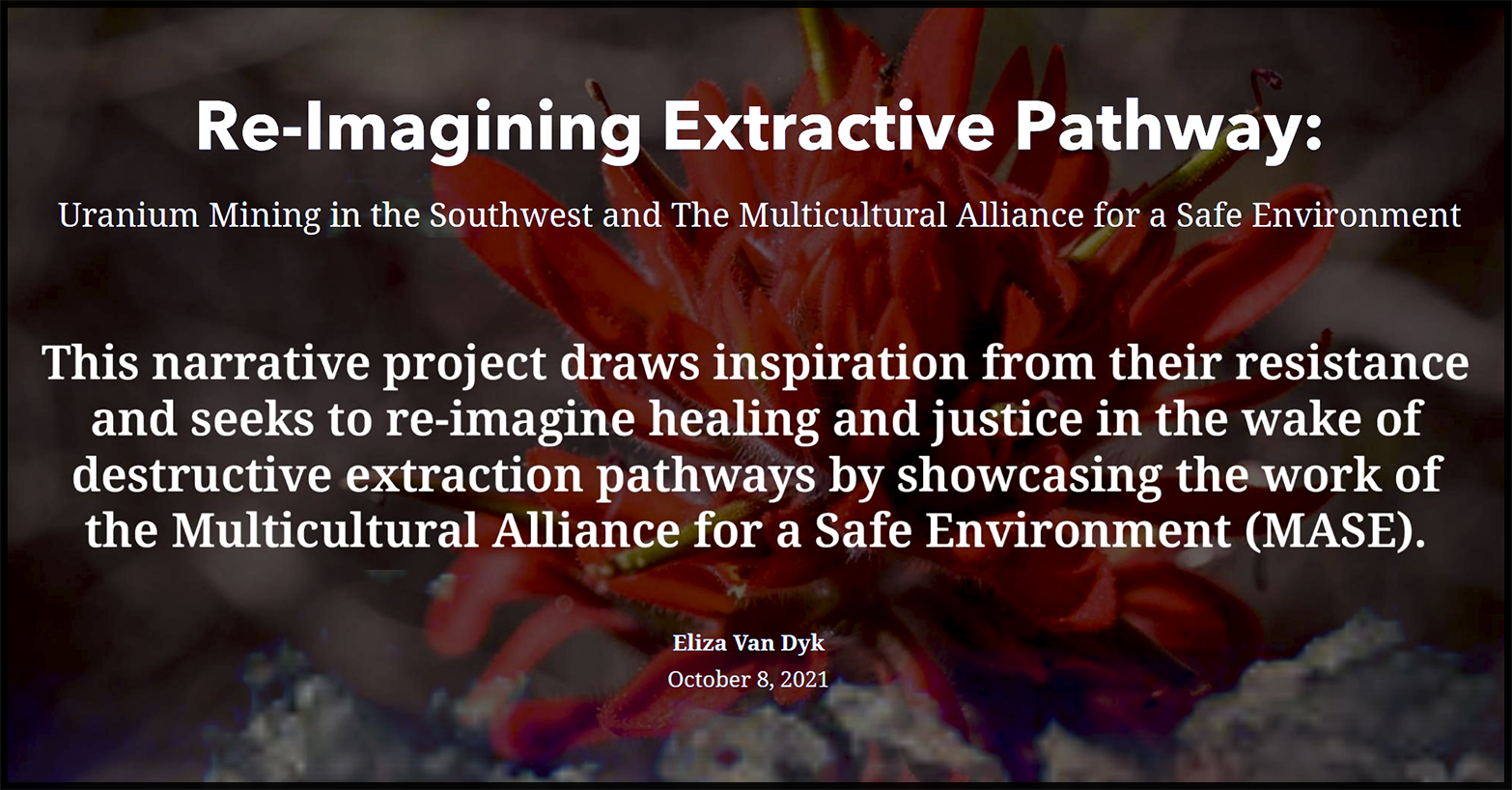Stealth Bill Undermines Navajo Uranium Ban by Allowing ISL “Demonstration” in Churchrock Scheduled for Vote Monday
FOR IMMEDIATE RELEASE: Dec. 23, 2013 Contact: Leona Morgan Sierra Club Front End Working Group leonamorgan@icloud.com 505-879-8547
Stealth Bill Undermines Navajo Uranium Ban by Allowing ISL “Demonstration” in Churchrock Scheduled for Vote Monday
Council Delegate Leonard Tsosie proposes legislation to allow in situ leach uranium mining
Chilchinbeto, Ariz. — Proposed legislation in front of a Navajo Nation Council committee on Monday would allow the operation of a controversial uranium mining project in Churchrock, despite the Nation’s 2005 ban on uranium mining and significant public opposition. The proposed bill, sponsored by Council Delegate Leonard Tsosie (Whitehorse Lake) and Delegate Chairperson Katherine Benally (Kayenta), would allow Uranium Resources, Inc., (URI) to construct a “demonstration project” that would extract uranium ore by using in-situ leach mining techniques, known as ISL mining. The legislation, if approved, at a specially scheduled meeting on Dec. 23, would create a right-of-way to access URI’s proposed mine site, located on 160 acres of privately owned land, called Section 8, which is surrounded by BLM and tribal trust land and Section 17 tribal trust land, near Churchrock and Pinedale. As a condition of mining uranium there, URI must transport the uranium out of the Navajo Nation for processing, which would entail trucking radioactive materials through multiple communities and across tribal trust lands. “This legislation is being pushed through on short notice and is essentially a back-door method to open up the Navajo Nation to uranium mining and attack the Diné Natural Resources Protection Act,” said Leona Morgan, a community organizer with the Sierra Club Nuclear-Free Front End Working Group. “For years, URI has been trying to build its ISL mine and find a way to defy the will of the people. Any major decisions that come out of our central tribal government should always have prior and informed consent from all impacted people and communities,” said Jonathan Perry, Eastern Navajo Diné Against Uranium Mining President. “Everyone should have an equal opportunity to speak on this issue. Haven’t we suffered enough? We must always remember that future generations will have to live with what we do today. I urge our elected officials to consider that when it comes time to state their positions on this proposed legislation.” The Navajo Nation Resources and Development Committee is scheduled to vote on Legislation 0373-13 at a special meeting 9 a.m. on Monday, Dec. 23, at the Chapter House in Chilchinbetoh, Ariz., following a five-day public comment period, which ended on Saturday, Dec. 21. The legislation is then reviewed and will require final approval from the president. “This is an action from a few elected officials that violates existing Navajo Nation policy and the United Nations Declaration on the Rights of Indigenous Peoples,” Morgan said. “It is unacceptable. We are urging community members to speak out against it and take action. Łéétsoh (uranium) is a poison and mining it is an improper and dangerous use of our water and natural resources.” Morgan will speak at a joint press conference with Diné CARE scheduled for 12 p.m. on Monday, Dec. 23, in front of the Navajo Nation Council Chambers in Window Rock. ISL mining is done by injecting a sodium bicarbonate solution deep below the surface into an aquifer that bears uranium. The resulting mixture is pumped to the surface and extracted. Waste water from the operation is then injected back underground. URI plans to haul the radioactive mixture to a processing plant in Texas to produce concentrated uranium known as yellowcake. URI, formerly known as Hydro Resources, Inc., has contaminated ground water at its ISL uranium mines in Texas. The proposed mine near Churchrock would involve the development of dozens of extraction and injection wells. On the surface of the mine, an industrial plant would be built in the southeast corner of Section 8 to process and package the uranium-laden slurry. Until now, construction of the mine has been blocked not only by the the Diné Natural Resources Protection Act, which prohibits all uranium mining, but by the lack of a formal access agreement to URI’s private property inholding. A pre-existing agreement requires URI to clean up any prior uranium contamination on Sections 8 and 17 prior to starting new mining operations. Community members have also fiercely opposed the mine’s development and the impacts to public health and the environment for more than 20 years. Don Yellowman, president of the Forgotten People, issued a proclamation against proposed Bill 0373-13. “This bill will continue to perpetuate the same destruction and devastation on our Dine families and communities. This bill is another genocidal act that continues to perpetuate evil across our motherlands,” said Yellowman. “I pray to our ancestors and all holy beings that our council delegates and other leaders (decision makers) turn away from evil acts and say no more to dirty business, politics and energy. And I challenge you to go beyond and say no to this legislation and any other legislation that further destroys our land, water and air.”
###
For more information: Don Yellowman’s proclamation: http://www.youtube.com/watch?v=k4ykpghypck NNC Legislation 0373-13: http://www.navajonationcouncil.org/Legislations/2013/Dec/0373-13.pdf Special RDC Meeting Agenda: http://www.navajonationcouncil.org/MeetingSchedules/2013/DEC/23DEC2013_RDC_Special_Mtg_Proposed_Agenda.pdf Diné Natural Resources Protection Act of 2005: http://www.navajocourts.org/Resolutions/CAP-18-05.pdf Radioactive Materials Transportation Act of 2012: http://www.navajonationepa.org/Pdf%20files/UraniumTaskForce/CF_18_12.pdf NN Energy Policy of 2013: http://www.nncouncil.org/uploads/directory/32fe3a909cee406fbad3148b277ca031/0276_13.pdf






